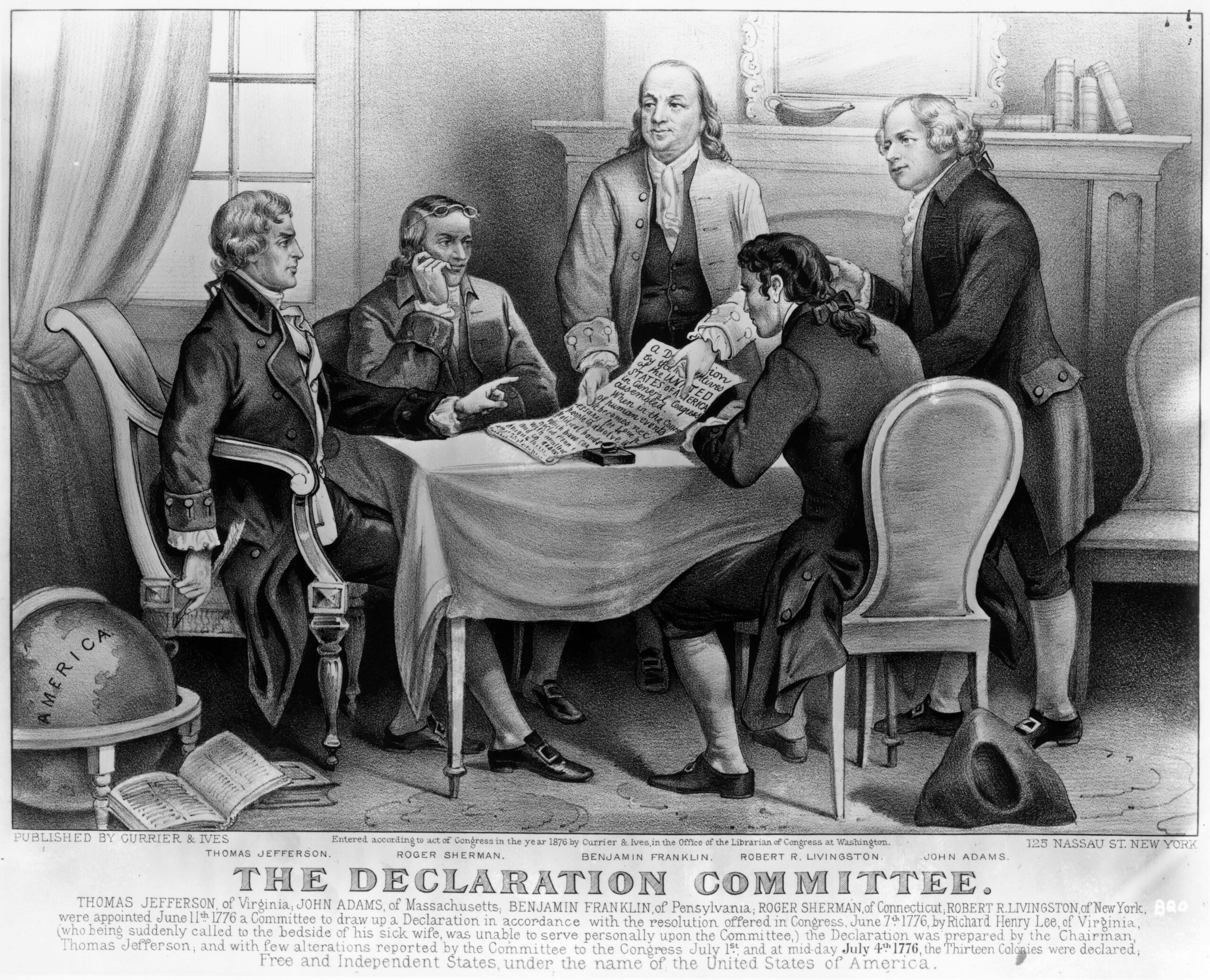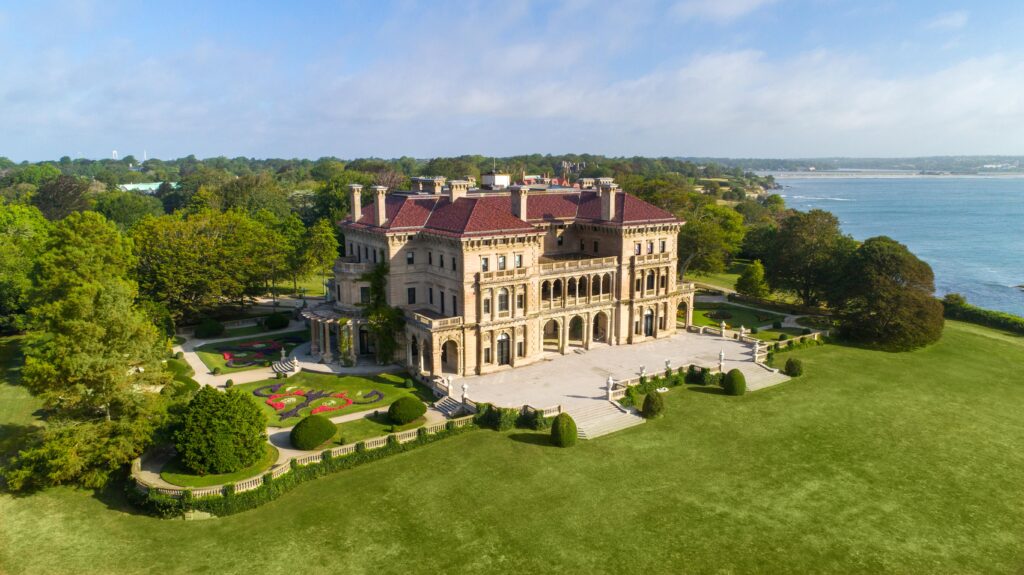Among the Founding Fathers, Roger Sherman is one of the best-kept secrets. But he shouldn’t be, especially in light of the cumulative and lasting effect he has had on this nation, including the present-day debates on the meaning and legal effect of the Ninth Amendment.
Most notable is the fact that he is the only Founding Father to have signed all of these prominent founding documents: the Declaration and Resolves (1774), which contain many of the rights that are enumerated in the First Amendment; the Articles of Association (1774), which was a trade boycott with Great Britain; the Declaration of Independence (1776); the Articles of Confederation (1777); and the U.S. Constitution (1787).
Sherman’s influence on the Constitution was greater than most realize. Historian Richard Werther wrote in 2017 in the Journal of the American Revolution that, at the Constitutional Convention debates, “of 39 issues cited, Sherman prevailed on 19, Madison on 10, and 7 resulted in compromises (the other 3 were interpretational issues for which no clear-cut winner is determinable).” Werther adds, “While no one is arguing that Sherman, not Madison, assumes the mantle as ‘Father of the Constitution,’ clearly Sherman had a bigger role than may have been previously understood.”
As a boy in Connecticut, Roger Sherman was self-educated in his father’s library and later by a newly built grammar school. He managed two general stores. Although he had no formal education in law, he passed the bar exam and was admitted to the bar in 1754. He wrote and published an almanac each year from 1750 to 1761. He served as a mayor, a justice of the peace, a county judge, a Connecticut Superior Court judge, and as a delegate to both the First Continental Congress and the Second Continental Congress. After ratification of the Constitution, he served in the U.S. House of Representatives from 1789 to 1791 and in the U.S. Senate from 1791 until his death in 1793.
Sherman’s reputation was stellar. He was described as honest, cunning, a staunch opponent of slavery, a devout Christian who was outspoken about his faith, and a protector of states’ rights. William Pierce, a delegate to the Constitutional Convention who took extensive notes, said of Sherman, “He deserves infinite praise, no man has a better heart nor a clearer head. If he cannot embellish he can furnish thoughts that are wise and useful. He is an able politician, and extremely artful in accomplishing any particular object; it is remarked that he seldom fails.”
Role in the Bill of Rights and the Ninth Amendment
Originally, Sherman was opposed to adding a bill of rights to the Constitution due to its being “unnecessary” and “dangerous.” He, like other Federalists, stated that it was unnecessary as the powers enumerated in the Constitution granted limited authority; if certain powers were not enumerated and delegated, then the federal government wouldn’t have the authority to infringe upon the rights in question. Plus, the states had their own constitutions protecting their citizens’ rights, and the Constitution is concerned only with federal guarantees, not states’ guarantees. The Federalists considered it dangerous to list certain rights as it could be construed that other rights not singled out were surrendered to the government; in other words, if they were not written down, then those rights would not be considered protected.
The original Constitution was signed by 39 delegates on September 17, 1787. It was during the First Congress on June 8, 1789, that James Madison proposed to “incorporate such amendments in the Constitution as will secure those rights, which they consider as not sufficiently guarded […] to satisfy the public that we do not disregard their wishes.” After Madison persuaded Congress to create a Bill of Rights, the proposals were referred to a House select committee, the Committee of Eleven, which took up the debates. In 1987, the National Archives discovered among Madison’s papers the only known copy of the deliberations of that House Committee, and they are in Sherman’s handwriting, most likely reflecting the thoughts of the committee as opposed to his personal views.
This discovery has created a vigorous debate among legal scholars as to the meaning and legal effect of the Ninth Amendment, the text of which reads, “The enumeration in the Constitution, of certain rights, shall not be construed to deny or disparage others retained by the people”: namely, what are the rights “retained by the people” referring to, and what legal effect do they have? To give context, it is essential to go back to Madison’s original draft regarding retained rights:
The exceptions here or elsewhere in the Constitution, made in favor of particular rights, shall not be so construed as to diminish the just importance of other rights retained by the people, or as to enlarge the powers delegated by the Constitution; but either as actual limitations of such powers, or as inserted merely for greater caution.
After the House committee’s debates and revisions, Sherman’s notes read:
The people have certain natural rights which are retained by them when they enter into society, such as the rights of conscience in matters of religion; of acquiring property; and of pursuing happiness and safety; of speaking, writing and publishing their sentiments with decency and freedom; of peaceably assembling to consult their common good, and of applying to government by petition or remonstrance for redress of grievances. Of these rights therefore they shall not be deprived by the government of the United States.
According to the Bill of Rights Institute, once the Bill of Rights was drafted, Sherman supported it, just as the people of Connecticut supported it.
Deborah Hommer is a history and philosophy enthusiast who gravitates toward natural law and natural rights. She founded the nonprofit ConstitutionalReflections (website under construction) with the purpose of educating others in the rich history of Western civilization.













